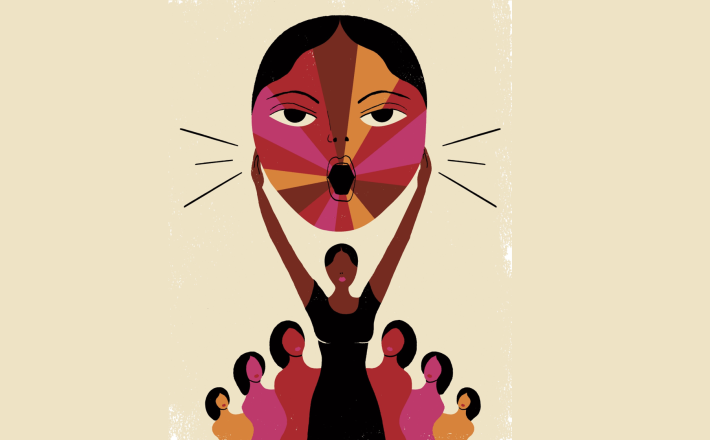What does feminist leadership look like in a pandemic?
Source: Medium
By Leila Billing,
I’ve been reading a lot of advice for leaders on how they can support their organisations to navigate Covid-19. Here’s a whistle-stop tour of the mainstream guidance I’ve read on blogs, websites and social media: stoicism is key; get better at running virtual meetings; be courageous; stay positive; remember that ‘from crisis comes opportunity’. While I’m not denying that each of these pieces of guidance has its merits, I wonder whether, cumulatively, this is really the type of leadership that we need in these fractured times. What if leaders of all stripes, from diverse sectors, started to follow the kinds of feminist leadership approaches that have been championed by activists from all over the world for decades. How might this type of leadership help us to navigate our way through these splintered, uncertain times?
Flex your instersectional analysis
Feminist leadership understands that we’re only as safe — or empowered — as the most vulnerable among us. An intersectional analysis helps us to understand how the virus disproportionately impacts specific groups of people, who, because of their intersecting identities, face unique forms of burden. Now more than ever, we must centre our work around the necessity for equity, empowerment, inclusion and justice for all. Feminist leaders must consider how we can step up their work for communities of colour, immigrants and refugees, incarcerated people and the homeless. If we have a platform, we must use it. If we have credibility and legitimacy, we need to share it. If we have access to power holders, we can open doors for others. We must be vigilant, however, that we aren’t doing this in a way that shifts recognition and attention away from affected communities, who should not only be listened to, but centred in the leadership of this work. I recently heard some disability activists complaining about feeling ‘co-opted’ and their expertise being extracted by so-called ‘allies’ in the Covid-19 response. In trying to show solidarity, feminist leaders should be mindful of all the good work that has gone on before we came on the scene and put aside any desire for our own social recognition.
Click here to read the full article published by Medium on 21 Mars 2020.

By Leila Billing,
I’ve been reading a lot of advice for leaders on how they can support their organisations to navigate Covid-19. Here’s a whistle-stop tour of the mainstream guidance I’ve read on blogs, websites and social media: stoicism is key; get better at running virtual meetings; be courageous; stay positive; remember that ‘from crisis comes opportunity’. While I’m not denying that each of these pieces of guidance has its merits, I wonder whether, cumulatively, this is really the type of leadership that we need in these fractured times. What if leaders of all stripes, from diverse sectors, started to follow the kinds of feminist leadership approaches that have been championed by activists from all over the world for decades. How might this type of leadership help us to navigate our way through these splintered, uncertain times?
Flex your instersectional analysis
Feminist leadership understands that we’re only as safe — or empowered — as the most vulnerable among us. An intersectional analysis helps us to understand how the virus disproportionately impacts specific groups of people, who, because of their intersecting identities, face unique forms of burden. Now more than ever, we must centre our work around the necessity for equity, empowerment, inclusion and justice for all. Feminist leaders must consider how we can step up their work for communities of colour, immigrants and refugees, incarcerated people and the homeless. If we have a platform, we must use it. If we have credibility and legitimacy, we need to share it. If we have access to power holders, we can open doors for others. We must be vigilant, however, that we aren’t doing this in a way that shifts recognition and attention away from affected communities, who should not only be listened to, but centred in the leadership of this work. I recently heard some disability activists complaining about feeling ‘co-opted’ and their expertise being extracted by so-called ‘allies’ in the Covid-19 response. In trying to show solidarity, feminist leaders should be mindful of all the good work that has gone on before we came on the scene and put aside any desire for our own social recognition.
Click here to read the full article published by Medium on 21 Mars 2020.